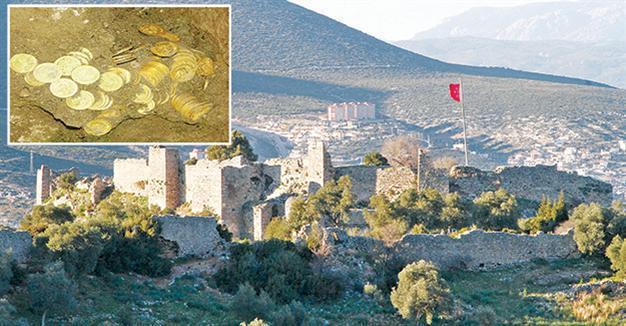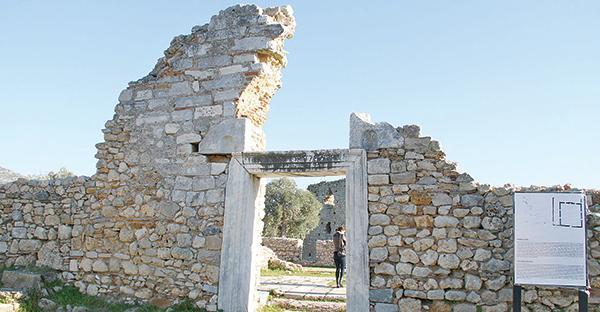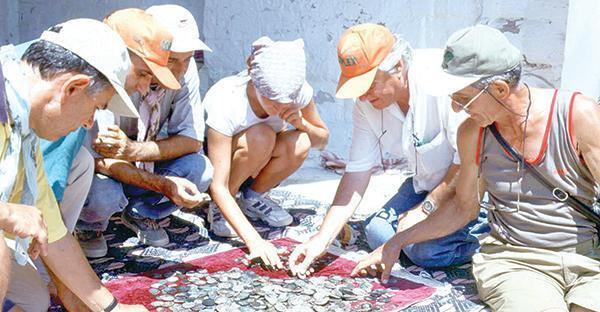Ottoman trove cleaned with q-tips
MUĞLA – Anadolu Agency

AA Photos
The Beçin treasure trove, which was discovered in 2000 during excavations in Beçin, located in the Milas district of the western Muğla province, was first weighed on grocery scales while each coin was cleaned with q-tips.The head of the excavations then, Professor Rahmi Hüseyin, who unearthed the trove of 48,848 Ottoman and 848 European coins, said they were very excited when they had found the trove in a structure called the “taxman house.”
Ünal said they had seen the trove 1.5 meters deep in the granary of the two-floor house, adding, “As we were digging, we saw the greatness of the trove.”
He said due to circumstances at the time, they had to weigh the trove with grocery scales. The trove weighed 33 kilograms, and the treasure was subsequently cleaned by the Ephesus excavation team.
“We weighed the treasure using more precision scales. We got almost the same result as the grocery scales. We joked with each other about the accurateness of the grocery scales,” he also said.
Ünal said the team had also discovered that the building had survived a big fire. As a result, the team has been unable to discover what exactly the building’s purpose was.
A special system was devised by the team to protect the trove, with specifically-made cabinets produced in Vienna that eliminate humidity, while the coins were given a special q-tip treatment.
The trove is the biggest Ottoman-era treasure trove that has been officially unearthed in Turkey, according to Ünal.
Ünal added the Beçin treasure had been made into two-volume books and a CD by the Austrian Academy of Sciences. “They have been published in Turkish by the Turkish Academy of Sciences [TÜBA],” he added.

Anatolia an important city for Turkish arts
The head of Beçin Castle excavations and Pamukkale University History of Arts Department, Professor Kadir Pektaş, said special arrangements at the Beçin Castle would be completed by the end of this year.
Since the beginning of excavations in 1974, many coins and ceramic pieces have been found in the area, and according to Pektaş, the trove was an important find for the scientific world.
Speaking of Beçin’s importance as a Turkish-Islamic era settlement, Pektaş said, “It is one of the rare examples established in the 14th and 15th centuries, which developed and defended itself. Excavations give very important clues about the Beçin Castle and Anatolian Turkish art. On the other hand, it is also a significant place in terms of early Anatolian history since it dates back to the Chalcolithic, Byzantine and Hellenistic eras.
Beçin has been known as Pezona, Bercin and Peçin throughout its thousand-year history. During the time of Anatolian beyliks, it served as capital of the Menteşe Beylik, a regional naval power of the time.

File Photo
















